Κανένα παράδειγμα οικονομίας αντιπραγματισμού, απλού και καθαρού, δεν έχει περιγραφεί ποτέ, πολλώ δε μάλλον η ανάδυση του χρήματος από αυτόν. Όλη η διαθέσιμη εθνογραφία υποδεικνύει ότι ποτέ δεν υπήρξε κάτι τέτοιο. Caroline Humphrey, Barter and Economic Disintegration (1985)
FYROM's Slavomacedonism, Part I: a Historical overview
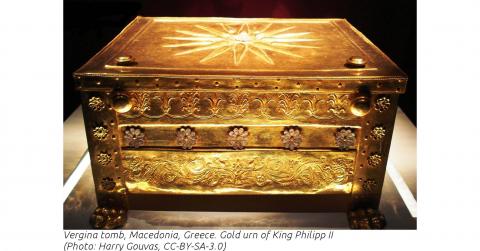
Note: This article originally appeared on Oct. 7, 2008 on ZNet. Changes mainly concern formatting and reassigning dead links. Edits are clearly marked with brackets.
The Russian reemergence as a global power after years of absence following the end of the Cold War, has had many repercussions and has therefore provided the incentive for US foreign policy to accelerate certain processes and tie up loose ends. One of these has been the military encirclement of Russia (the discovery of the "new Europe" during the second Iraq war, the installation of the anti-ballistic shield in Poland and the Czech Republic, the NATO enlargement with former Soviet Republics and Warsaw-pact countries on the Russian borders, etc). Another has been the "Balkanization" of the Balkans, meaning their slicing into small, weak and quarrelling states subservient to the US, a policy also followed by the EU. This new reality is expected to greatly benefit the US-Turkish hegemony over this geopolitically vital region (many oil and natural gas pipelines already pass, or are planned to pass from there in the near future, circumventing Russian oil routes). This policy was inaugurated during Bill Clinton's presidency, with the dismemberment of Yugoslavia after 1992, and continued with the NATO bombings of Serbia in 1999 and its own subsequent dismemberment. It has now culminated with the unilateral declaration of independence by Kosovo and its secession from Serbia.
Often these two policies coincide, e.g. as happens with the US goal of including into NATO the states formerly belonging to Yugoslavia. As part of this acceleration, George W. Bush has decided to recognize FYROM (Former Yugoslav Republic of Macedonia) with the contested (by Greece) name of "Republic of Macedonia". And he chose to do this on November 4th 2004, only hours after his reelection. His aim was to stabilize FYROM's inherently unstable government in view of a very controversial referendum just three days later (November 7th 2004). The stabilization of FYROM as a state is still an open question, due to its competing Slav and Albanian populations (violent fights had broken out on 2001); its Euro-Atlantic integration is considered as the remedy for all ills. This is why G. W. Bush pushed so hard to include it in the NATO enlargement during last April's NATO summit.
The conflict with Greece stems from FYROM's demand to be internationally recognized as the "Republic of Macedonia", asserting that it is the state of the descendents of ancient Macedonians (the kingdom of Alexander the Great), implying claims to the Greek province of Macedonia in Northern Greece. I will be referring to this doctrine "Slavomacedonism". I will not go into the historical veracity of these claims, as this would take too much space and time (very briefly, ancient Macedonia was a Greek kingdom, while modern "Macedonians" have a Slavic descent as FYROM's first President Kiro Gligorof had admitted in 1992, when he said: "We are Slavs, we have no connection with Alexander the Great, we came to this area in the 6th century A.D."). Besides, 25% of FYROM's population are ethnic Albanians (2002 census), who do not ascribe to this "Macedonian" descent. Thus, I will rather analyze the roots of Slavomacedonism, the ensuing conflict and its implications on Greek security and sovereignty. And eventually on regional stability, should these claims be considered useful for regional destabilization.
We are Slavs, we have no connection with Alexander the Great, we came to this area in the 6th century A.D.
Kiro Gligorov, June 3rd, 1992 (interview in Tirana, Albania)
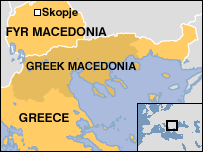
Brief historical overview
Macedonia in antiquity was a Greek kingdom, mostly known by the reign of King Phillip II and the legacy of his son, Alexander the Great. The whole debate of ancient Macedonians being ethnically, genetically, linguistically, and culturally related to the present Slavophone populations of the region has been created (as will be described) for particular geopolitical purposes. It is not worth spending time and space to debunk it here. Instead, I would rather proceed to describe the creation of Slavomacedonism.
Macedonia till the mid 19th century
Slavs started migrating into Central Europe and the Balkans (including the region of Macedonia) from the Ukraine, in the beginnings of 6th century AD. In medieval times, Slavs managed to create several state-like formations (Bulgaria, Moravia, Russia, Poland, Serbia and Croatia, in chronological order). However, many Slav populations did not do so. Instead, they were assimilated by neighboring states, as distinct linguistic communities, but without a distinct national identity. For example, when the "Kingdom of Serbs, Croats and Slovenes" was formed in 1918, a referendum was held to determine the luck of the Austrian province of Carinthia, on the Northern border of the newly established Kingdom. Carinthia was populated by a 2/3 Slovene-speaking (Slavophone) majority and a 1/3 German-speaking minority. Despite that, however, 59.1% of Carinthians (22,025) opted to stay within Austria, while only 40.9% (15,279) opted to join the Slavic kingdom. Thus, most Slavophone Carinthians opted to remain within Austria, showing that their national identity diverged from their linguistic one.
In Macedonia things were similar. Kofos writes:[1]
Until the middle of the 19th century, Macedonia was generally regarded primarily as a Hellenic region and there was good reason for this. During four centuries of backward Ottoman rule, the national consciousness of the illiterate peasants, with the sole exception of the Greeks, had receded to a point near non-existence. Only the common Orthodox Christian heritage acted as a link between the Balkan peoples and set them apart from Mohammedan Turks. The Church was in the hands of the Greeks and the Greek language was a characteristic of a social and cultural superiority to such an extent that even the Bulgarian elite in order to raise itself from the masses had to learn it." In a report of 1885, the Secretary-General of the Bulgarian Exarchate writes: "It is a sad fact but we must admit that the largest part of the Bulgarian population of Macedonia does not have a Bulgarian national consciousness... If Europe were to demand today that the Macedonian people decide on their fate and say to which nationality they belong, we are certain that the largest part of the Macedonian people and of Macedonia would slip away from our hands. If we exclude two or three regions of Northern Macedonia, the inhabitants of the other regions are ready to declare that they are Greeks... If the Great Powers were to intervene and demand a plebiscite to solve the Macedonian problem the Greeks would come out as winners.
As Lunt puts it: [2]
the majority of Slavs in Macedonia in the middle of the nineteenth century probably had no strong ethnic consciousness and were content with the label Christian, essentially meaning non-Muslim. The remaining minority included some, particularly in the south, who would accept the label Greek, others, particularly in the north, who allowed themselves to be called Serbian, then another--surely larger--group who as non-Greek and non-Serb would use the ethnonym Bulgar, and finally those who insisted they were non-Bulgarian as well and who, for lack of any better name, declared themselves to be Macedonians.
During the Byzantine and subsequently the Ottoman empire, other peoples had joined the Greek population of Macedonia: Christian-orthodox populations like Albanians and Vlachs; Sephardic Jews; Roma; Muslim populations like Turks, and Islamized Pomaks and Islamized Albanians. And of course Slavs, that through time had been Christianized and some of which were later Islamized, like Bosnians. Travelers of the time (like the Turks Evlia Tselembi and Catzi Kalfa, the French Robert De Dreux and the English Ed Brown (1674) and John Covel (1667)) often speak of all these populations, but none speaks of "Macedonians" in an ethnological sense of the term.
A turning point in the Balkan affairs came after the Russian defeat in the Crimean war (1854-56). It was than that Russia reverted from its Pan-Orthodox doctrine (Catherine the Great had assisted the Greek struggle against the Ottoman rule) to Pan-Slavism, a "theory and movement intended to promote the political or cultural unity of all Slavs".[3] This change in strategy required that many Slavophone Orthodox populations of Macedonia, that previously identified themselves as Greeks (like the Carinthian Slavs identified themselves as Austrians), should now revert to a different national identity. This coincided with the rise of the Bulgarian and Serbian nationalisms, and of their "Great Ideas", i.e. the renaissance of the state of Hegemon Symeon (893-927) and Tsar Samuel (976-1014), for the Bulgarians and of the state of Stephan Doussan (1331-1355), for the Serbs. This new identity was to be the "Slavo-Macedonian" one. These two "Great Ideas" were to collide with the Greek "Great Idea" of unliberated Greek populations, which had fought against the Ottoman empire in the Greek Revolution (1821-1828). These were dreaming the renaissance of the Byzantine empire.
Bulgarian Slavomacedonism
Slavomacedonism was initially put to the service of the Bulgarian nationalist movement. In 1870 the Bulgarian bishoprics seceded from the Patriarchate of Constantinople, to form the Bulgarian Exarchate. This secession was validated by a firman (decree) of the Sultan on February 28th, 1870. The Exarchate thus included the areas today occupied by Bulgaria and FYROM, as well as parts of today's Northern Greece, Serbia, Albania and Romania. In 1878 (February 21st), Russia obliged the Ottoman Empire to sign the Saint Stefan Treaty, with which the Ottoman empire recognized the independence of a Bulgarian state (Hegemony) that lay from Danube river to the Aegean Sea and from the Black Sea to Salonica (without Salonika, Chalkidiki, Kozani, Servia). This was unacceptable by the Greek populations, which had the Great Powers intervene and cancel this treaty with the Treaty of Berlin (July 1st, 1878). In 1893 the VMRO (Vnatresšna Makedonska Revolucionerna Organizacija, or IMRO, Inner Macedonian Revolutionary Organization) was founded as a Bulgarian autonomist organization. It proclaimed the creation of an independent multiethnic "Macedonian" state that might later be annexed to Bulgaria.
The Balkan Wars
Between 1904-1908, violent fights between Greeks and Bulgarians took place for the capture of the region of Macedonia. These stopped in 1908 when the Young Turks movement (a reformist, antimonarchic and antitheocratic Turkish group) took power and promised reforms. However, the Young Turks' policies were even more resented by the Balkan populations. As a result the Balkan League was formed on 1912, after a series of treaties between Greece, Bulgaria and Serbia, with independence as its main request. This led to the Balkan Wars. During the First Balkan War (1912-13), Montenegro, Greece, Bulgaria and Serbia formed an alliance and successfully fought the Ottoman Empire, freeing most of its Balkan territories. However, the division of these territories among them, and especially of the region of Macedonia, triggered the Second Balkan War (1913). This started when Bulgaria attacked Greece and Serbia to capture Macedonia and led to the quick defeat of Bulgaria and the loss of most of the regions it had freed from Ottoman rule.
First World War
The First World War started with an attack of Austro-Hungarians on Serbia in 1914. Serbia was not overrun until Germany, Bulgaria and the Ottoman Empire aligned with the Central Powers. Greece was initially neutral due to the internal division of the Germanophile King Constantine I and the Anglophile PM Eleftherios Venizelos. When, however, the Bulgarian army entered Greece in 1916, capturing newly-won Greek areas of Macedonia, Venizelos proceeded with various army officers to stage a coup (Movement of National Defense). He then set up a second government in Salonica which fought on the side of the Entente powers (Britain, France and Russia). In 1918 the Central Powers and Bulgaria were defeated. Serbia, Croatia, Bosnia-Herzegvina, Slovenia and Montenegro formed the Kingdom of Serbs, Croats and Slovenes (Kraljevina Srba, Hrvata i Slovenaca).
Interwar period
After an administrative redistribution (1922) of the newly found Kingdom, the former Serbian District of Skopjie was renamed to Oblast of Skopjie. After King Alexander's January 6th Dictatorship (1929) the kingdom was renamed Kingdom of Yugoslavia (Yugo-slavia meaning South-Slavia). Following another administrative subdivision of the kingdom the same year, it was subdivided into nine provinces (banovinas), one of which was Vardarska Banovina with Skopjie as its capital; the denomination "Macedonia" still carried many negative connotations, associated with Bulgarian claims and was, therefore, avoided. The purpose of this administrative subdivision on geographical criteria, was the artificial intermixing of the various Slav ethnicities, on the premise that they were anyway all members of the same nation (recent developments proved that this was not exactly so).
In that same time period, the problem of mixed populations was "solved" by a series of forced relocations. Between 1922-26, 500-700 thousand Muslims were relocated to Eastern Thrace and Asia Minor. 150-200 thousand Bulgarians or Slavs abandoned Greece. Also, 2 million Greeks left Asia Minor, Eastern Thrace and the Black Sea, while over 300 thousand were forced to abandon territories under Serbian or Bulgarian rule. As a result, the populations of those countries were separated according to their nationalities for the first time. A 1926 census of the League of Nations reported that 77 thousand Slavophones remained in Greek Macedonia (the bulk of the historical region), with a Greek population of 1,341,000. Bulgaria, still under the influence of the treaty of Saint Stefan and the vision of a Great Bulgaria, never abandoned its territorial claims. It still coveted Greek Macedonia and Yugoslav Vardarska and insisted upon the issue of "Slavomacedonians". The Bulgarian Communist Party never ceased to proclaim the creation of an autonomous Republic of Macedonia and Thrace.
Of paramount importance at that time was Comintern's (Communist International) position on the Balkan issues. As early as the 1920's, the goal of the expansion of Communism in the Balkans was clearly set and Bulgaria was considered as the ripest of the countries for this expansion to commence. This would allow the Soviet Union access to warm waters, a goal dating back to the Russian Tsars. The position upheld by Bulgaria and endorsed by the International meeting (March, 1924) of the Balkan Communist Federation (in which all Balkan Communist parties were represented) was that of an "independent and united Macedonia" consisting of Greek, Yugoslav and Bulgarian territories. According to it, Bulgaria had the most to gain, while Yugoslavia and Greece had the most to lose. The 5th International meeting of the Comintern (May, 1924) ratified this resolution. Bound by the Soviet-dominated Comintern requirements, the Greek Communist Party (KKE) delegates also acquiesced to this position. This was a disastrous choice, as it brought them against Greek public opinion, particularly in Macedonia, which was very sensitive about that matter. As a consequence, in 1928 KKE faced a crushing electoral defeat (1.41% of votes) and was left out of the parliament. This position held until December 1935, when during its 6th congress the KKE backpedaled to another position, of equality of all minorities, dropping the subject of an "independent and united Macedonia".
The Second World War and Yugoslav Slavomacedonism
When the Second World War broke out, Bulgaria (allied to the axis forces) invaded and occupied a large portion of Greek Macedonia and the Yugoslav Vardarska. However, a portion of Slavophones in Yugoslav Vardarska enlisted in the newly-formed Yugoslav Partisans of Josip Broz Tito (member of the outlawed Communist Party of Yugoslavia at that time). Another portion enlisted in the communist Greek Liberation Army, ELAS (in Greek Macedonia), against the axis forces. Now, Tito found it useful to use the "Slavomacedonian" ideology himself to draw Slavophones of the region of Macedonia into his own camp against the Bulgarian fascist forces.
From the Bulgarian side, it was the nationalist VMRO that continued to profit from the use of the "Slavomacedonian" ideology.[4] After Germans invaded Greece, the leader of VMRO, Ivan Mihailoff helped organize the Slavophones of non-Greek identification. This was done with Mussolini's help at first, and after mid-1943, with Himmler's as well. Thus, the "Bulgarian Committee" was founded by Anton Kalchev, as an annex to the Bulgarian Ohrana ("Defence") organization. After the Italian capitulation, several VMRO militia regiments were organized with Himmler's permission, and armed by the Nazi to fight against the ELAS. The 4th SS division assisted the VMRO in these battles.
When, in 1943, the axis appeared to be losing the war, many Slavophone Nazi collaborators, Ohrana members and VMRO regiment volunteers fled to the opposite camp by joining the newly founded "Slavomacedonian National Liberation Front" (Slavjano ?akedonski Narodno Osloboditelen Front, SNOF). SNOF, was created by Yugoslav communists with the reluctant acquiescence of the KKE, in the hope that it would draw Slavophones away from the Bulgarian fascist propaganda. KKE was bound by Comintern to recognize the existence of a "Slavomacedonian" population. SNOF regiments fought with ELAS, until they were disbanded by ELAS itself (October 1944) due to SNOF's overt secessionist propaganda, and driven off Greece.
The Cold War and the Greek Civil War
Bulgarians definitively left Greek territories in October 1944 and reduced (though not abandoned) their "Macedonian" claims. It was now Tito that made use of Slavomacedonism, making the Macedonian issue a Greek-Yugoslav one. In 1945 the largest part of Vardarska formed one of the federate states of Yugoslavia and was renamed to People's Republic of Macedonia. It was the first time that an official entity bore the name "Macedonia" outside Greece. Until that time, the Greek Province of Macedonia was the only official entity to carry that name. Around that time the terms Vardar, Pirin and Aegean Macedonia were coined, to denote the Yugoslav, Bulgarian and Greek territories of "Macedonia", respectively, implying that these territories should be united. This irridentism was Tito's way of projecting expansionist claims over Greek Macedonia. This time also brought a qualitative differentiation of Slavomacedonism. Up till that time, Greek, Ottoman, Bulgarian, or other records, spoke about Greek, Bulgarian, Turkish, Armenian, Jewish, etc, populations of Macedonia. In that way, the term "Macedonian" was only used to describe the place of one's residence. As of that time, however, the meaning of that term was transformed to denote a new ethnicity, that of "Macedonians", whose ancestry dated back to the ancient Macedons. Thus, a new "nation" was born. The language of that "nation" was dubbed "Macedonian", disregarding the fact that it was mainly Bulgarian, whereas all ancient coins and inscriptions excavated throughout Macedonia are in Greek.
At that time, SNOF was succeeded (April 23rd, 1945) by the NOF (National Liberation Front), a secessionist organization calling for the independence of the "Macedonian people". Although KKE and its leader Nikos Zahariadis initially denounced NOF for adopting this line, at the end of 1945 they chose to "overlook" it, being in need of Yugoslav cooperation. The imminent Greek Civil war between Communists (Democratic Army of Greece) and the official Greek National Army, dictated that the KKE-NOF relations be "normalized". Thus KKE again changed its position vis-a-vis Slavomacedonism (which now became more acceptable) and NOF (which it fought on the side of the Democratic Army during the Greek Civil war).
In 1947, under the Bled Agreement (or Tito-Dimitrov treaty, August 2nd, 1947) between Yugoslavia and Bulgaria, Bulgaria agreed to recognize a Macedonian nation and language and to prepare the way for a unification of the "Vardar Macedonia" with the "Pirin Macedonia". Tito envisioned a Balkan Federative Republic with him at the helm. This, among others, angered Stalin. The subsequent Tito-Stalin split in the summer of 1948 brought this agreement to an effective collapse, as Bulgaria withdrew from it under Soviet pressure, while denouncing all their bilateral accords and breaking diplomatic relations.
This rift between Tito and Stalin brought KKE between a rock and a hard place: it collaborated with the Yugoslav-influenced NOF, but received Soviet aid through Bulgaria. In trying to please both, it tepidly accepted Cominform's decision to denounce Tito, without however overtly turning against Yugoslavia. Nevertheless, this caused the pro-Yugoslav wing of NOF to start organizing desertions of Slavophone fighters of the Democratic Army into Yugoslavia. Under these developments, and to counter these desertions, Zahariadis imposed yet a new line during the 5th Plenary Session of KKE in 1949: he called for "national reinstatement and self-determination of the Macedonian people", while it was announced that the 2nd NOF conference would rally for "a united and independent Macedonia in a People's Balkan Federation". This decision brought him against not only Tito, whose Yugoslav-centered Slavomacedonism he questioned. It also brought him against Greece, whose territorial integrity was thus jeopardized.
At the same time, Tito's defiance toward Stalin and the USSR, dictated that NATO offered a preferential treatment to Yugoslavia. Therefore, during the Cold War, Greece (albeit a NATO ally after 1954) had to "go along and get along" since the Macedonian issue was considered secondary. During the Cold War period and under Tito, the "Macedonian history" was rewritten in order to create a new "Macedonian" national identity. Slavomacedonism was officially introduced in schools and Universities and used to raise new generations. The "Macedonian language", an idiom very close to, and intelligible with Bulgarian was codified at that time. And the links between Alexander the Great and modern Slavs started to be forged. This systematic work persisted throughout this period and raised new generations:
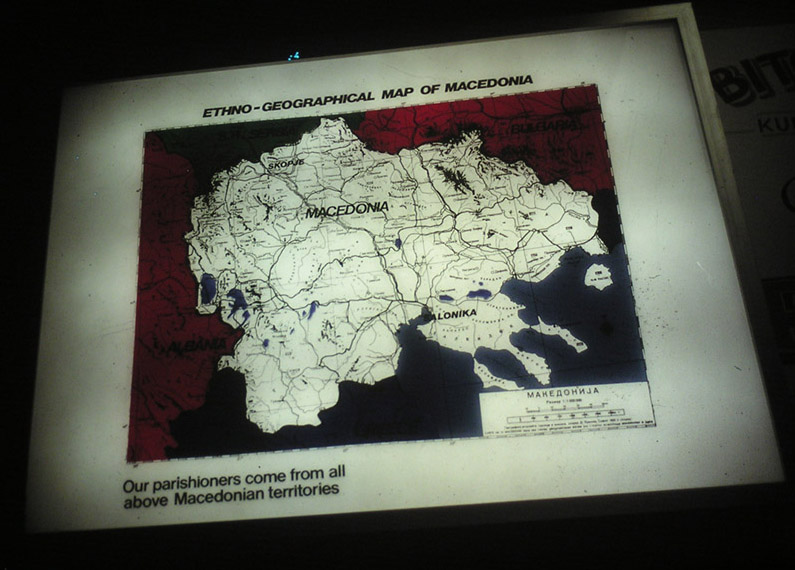
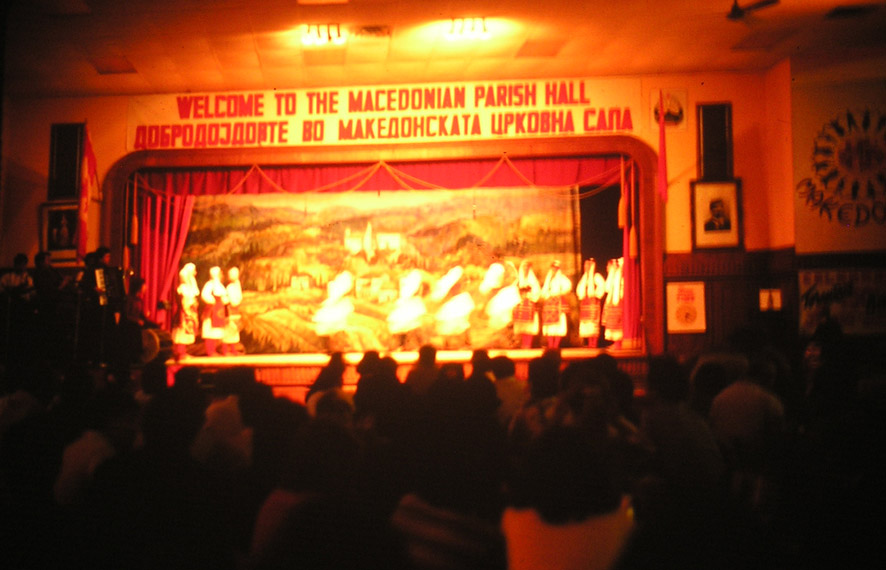
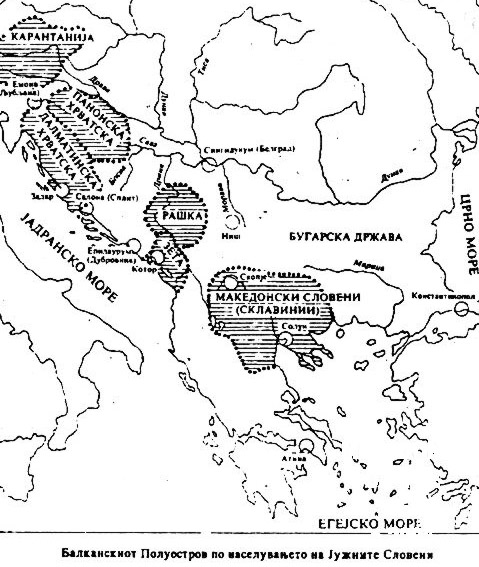
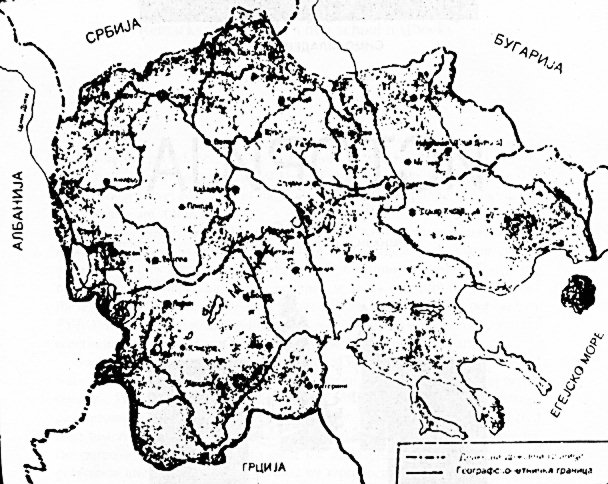
After the Cold War
This "Pandora's box" reopened with the dissolution of the Yugoslav federation and the independence of its constituent states. The "Socialist Republic of Macedonia", as was formerly named within Yugoslavia, dropped the "Socialist" and demanded recognition as "Republic of Macedonia" after seceding from the Yugoslav Federation (1991). Its Slavophone inhabitants, after decades of indoctrination, could not bear the blow of abandoning their glorious "links" with Alexander the Great, as that would deprive them of an equally glorious past. As acknowledged by Roudometof: "By 1983, only 10% of FYROM's population had been born before 1923. This means that a considerable portion of FYROM's current population has been socialized into the Macedonian national culture (as it evolved through the course of the post-1944 period) and has no personal experience of the Macedonian Question as it was expressed during the interwar period (1918-1941) or earlier". [5]
After two years of dispute with Greece, the newly independent state was admitted in the UN under the provisional name of "Former Yugoslav Republic of Macedonia" (April, 1993), pending settlement of the naming issue. This decision of the Greek government (of the conservative New Democracy party) was so controversial that it caused its collapse, when several of its deputies split from the party, thus toppling its slim majority. The government of PASOK, that took power after the next elections, imposed an embargo on FYROM as of February 1994. This lasted until September 1995, when under US pressure the embargo was lifted and the Interim Accord was signed. Under that accord the two countries pledged to continue negotiations, while FYROM was obliged to remove the Vergina's sun from its flag (a symbol of the ancient Greek kings of Macedonia) and promised to revise its constitution so as to remove from it any expansionist allusions.[6] However, the use of the term "Macedonia" which Greece vehemently opposed and which FYROM refused to drop, led to an effective halt of the discussions. This changed in 2004 after the recognition of FYROM by the USA under its constitutional name, as we mentioned in the beginning.
This unresolved matter has not assisted the stability of FYROM, which is inherently unstable due to its ethnic composition. Its Albanian minority adheres to the vision of a "Great Albania" rather than to that of Slavomacedonism. Their language is Albanian and not the Slavic spoken by the Slav majority (very close to Bulgarian). In addition, they are Muslim, in contrast to the Christian Slav majority. The Albanian minority had repeatedly protested regarding its treatment by the government. In January 2001 the National Liberation Army (NLA), an Albanian paramilitary, started attacks against government forces, in a way similar to that of the KLA in Kosovo. The armed conflicts reached the brink of civil war, before the US and the EU intervened, by having the two sides sign the Ohrid Accord in August 2001.
Today, FYROM remains unstable, with the US acting as the guarantor of its territorial integrity. The centrifugal forces due to the Albanian minority are certainly far from quenched by the financial adversities of the country. With an official 35% unemployment rate (the grey market is estimated to more than 20% of the GDP) and about a third of its population below the poverty line, it is heavily dependent upon foreign investment for its economy to function. In 2007, Greek capitals invested in FYROM had reached 950 million Euro (US$1.42 billion), rendering Greece the largest foreign investor of the country. The 300 Greek businesses active in FYROM account for 20,000 jobs.
In the second part, we will review the recent developments in the Greece-FYROM conflict and their geopolitical context.
References
[1] D. Missev-Obreikov, 1885, "Report on the Present Situation of Bulgarism in Macedonia", by the Secretary-General of the Bulgarian Exarchate. Cited by Evangelos Kofos in "Nationalism and Communism in Macedonia", 1964, Institute of Balkan Studies, Thessaloniki, pp. 12-13. Taken from D. Vogazlis, "Macedonia: a Comparative Historical, Ethnological nd Legal Study", 1962 Athens, unpublished.
[2] Horace G. Lunt, 1984 "Some Sociolinguistic Aspects of Macedonian and Bulgarian." In Language and Literary Theory, edited by Benjamin A. Stolz, I. R. Titunik, and Lubomir Dolezel, 83-132. Ann Arbor: University of Michigan Press.
[3] The Columbia Encyclopedia, Sixth Edition. Copyright 2008 Columbia University Press. "The first Pan-Slav Congress, held at Prague in 1848 [...] was confined to the Slavs under Austrian rule and was anti-Russian. The humiliating defeat suffered by Russia in the Crimean War (1853-56) helped transform a vague, romantic Russian Slavophilism into a militant and nationalistic Russian Pan-Slavism. [...] Pan-Slav publicist [...] Rotislav Andreyevich Fadeyev [...] claimed that it was Russia's mission to liberate the Slavs from Austrian and Ottoman domination by war and to form a Russian-dominated Slavic federation. [publicist Nikolai Yakovlevich] Danilevsky predicted a long conflict between Russia and the rest of Europe, to be followed by a federation of states including the Greeks, Magyars, and Romanians as well as the Slavs."
[4] VMRO is Mr Gruevski's party currently governing FYROM. [Edit 12/1/2018: Modern VMRO was named after the VMRO/IMRO founded in 1893]. During the 30's it [VMRO/IMRO] was led by Ivan "Vancha" Mihailoff. Mihailoff was a close friend and collaborator of Ante Pavelic, the leader of the Croatian Nazi organization of Ustashe. In fact, it was Mihailoff that introduced Pavelic to Heinrich Himmler, leading to the Croatian-Nazi alliance during the war. For more information on Pavelic see here and for more of his photos see here.
[5] Victor Roudometof, Journal of Modern Greek Studies 1996, 14:2, 253-301.
[6] The following articles imply territorial claims and have been recently commented here.
Article 3. Par. 1: The territory of the Republic of Macedonia is indivisible and inviolable.
Par. 2: The existing borders of the Republic of Macedonia are inviolable.
Par. 3: The borders of the Republic of Macedonia can only be changed in accordance with the Constitution and on the principle of free will, as well in accordance with generally accepted international norms.
Par. 4: The Republic of Macedonia has no territorial pretensions towards any neighboring state.
Article 49. Par. 1: The Republic cares for the status and rights of those persons belonging to the Macedonian people in neighboring countries, as well as Macedonian expatriates, assists their cultural development and promotes links with them. In the exercise of this concern the Republic will not interfere in the sovereign rights of other states or in their internal affairs.
Article 68. Par. 1: The Assembly of the Republic of Macedonia:...
- makes decisions concerning any changes in the borders of the Republic;
In red, are the amendments to accomodate Greek concerns, which nevertheless, leave the core of the articles intact.

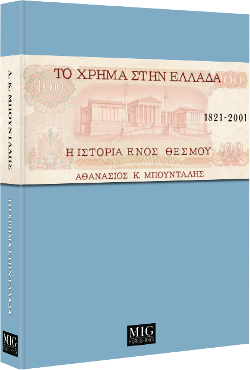




Προσθήκη νέου σχολίου